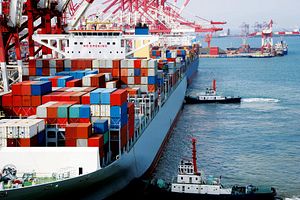Once considered the world economy’s savior, emerging markets have suddenly been identified as a threat to global growth. With a BRIC economic slowdown hurting the prospects of major exporters, can the developed world pick up the slack?
Announcing Tuesday its latest Economic Outlook, the Organization for Economic Cooperation and Development (OECD) put the spotlight on emerging markets such as Brazil and India as it slashed its growth forecasts for the year ahead.
Warning that downside risks “dominated” the outlook, the Paris-based institution cut its global growth estimates to 2.7 percent in 2013 and 3.6 percent next year, down from the 3.1 percent and 4 percent forecast in May.
While the organization said it expected a pickup by 2015, it warned of “negative shocks” from emerging markets due to the effects of the US Federal Reserve unwinding its easy money policy, sudden capital outflows and longstanding structural impediments.
“Most of the emerging economies have underlying fragilities that mean they cannot continue growing as they used to,” OECD Chief Economist Pier Carlo Padoan told Bloomberg News. “They used to be an important support engine for global growth in bad times. Now the reverse is true and advanced economies can’t be said to be in very good times again.”
Among the BRICs, India is predicted to expand by only 3.4 percent this year and 5.1 percent in 2014, down from the OECD’s previous forecasts of 5.7 and 6.6 percent respectively. Brazil was also marked down to 2.5 percent in 2013 and 2.2 percent next year from 2.9 and 3.5 percent previously, despite the boost from construction spending due to hosting the FIFA World Cup and Olympics.
Growth in most other major emerging market economies is expected to be below par, with Indonesia, Russia and South Africa all set to lose ground compared to the OECD’s May forecasts.
However, helped by a “small fiscal stimulus,” China is expected to post GDP growth of 7.7 percent in 2013 and 8.2 percent next year, boosted by domestic demand. Nevertheless, the OECD warned of excessive credit and monetary growth, calling for Beijing to enact further financial market and taxation reform along with increasing social benefits.
“A stronger slowdown in EMEs [emerging market economies] would lower growth in advanced economies, most notably in Europe and Japan,” the OECD said, reflecting the recent warning given on Japan’s growth prospects in The Diplomat.
Developed World Risks
While the spotlight was placed on emerging economies, the OECD said the developed world still faced risks to its sluggish recovery.
“There is a risk of another bout of brinkmanship in the U.S., and there is also a risk that tapering of asset purchases by the U.S. Federal Reserve could bring a renewed bout of instability. The exit from non-conventional monetary policy will be challenging, but so will action to prevent another flare-up in the euro area and to ensure that Japan’s growth prospects and fiscal targets are achieved,” OECD Secretary General Angel Gurria said in a statement.
The 34-member OECD is expected to post growth of only 1.2 percent this year, rising to 2.3 percent in 2014, with the eurozone not exiting recession until 2014. The United States is seen growing at only 1.7 percent this year, with further brinkmanship over fiscal policy having the potential to cause “a new global recession.”
Japanese growth is expected to cool from 1.8 percent in 2013 to just 1 percent in 2015, with more “bold structural reform measures” needed to maintain confidence in Abenomics, as well as a “detailed and credible plan” on fiscal consolidation.
The OECD said the Australian economy was “still in a transition phase” following the cooling of the mining boom, with sub-par growth expected of 2.5 percent this year and 2.6 percent in 2014. It urged Canberra to avoid further tightening of fiscal policy and ensure interest rates remained low.
Summing up the gloomy report, the OECD’s chief economist Pier Carlo Padoan said: “Growth since the global crisis has been uneven and hesitant, while job creation has been even more disappointing. Clear and credible strategies are needed for how jobs and growth will be created and public finances restored. This will require a strong commitment to structural reforms in advanced and emerging market economies alike.”
With lawmakers in Washington and Tokyo fighting their own fiscal battles, the emerging world feeling the effects of forecast Fed tapering and the eurozone’s banking system in crisis mode, the message to policymakers is clear: there is no room for complacency.

































